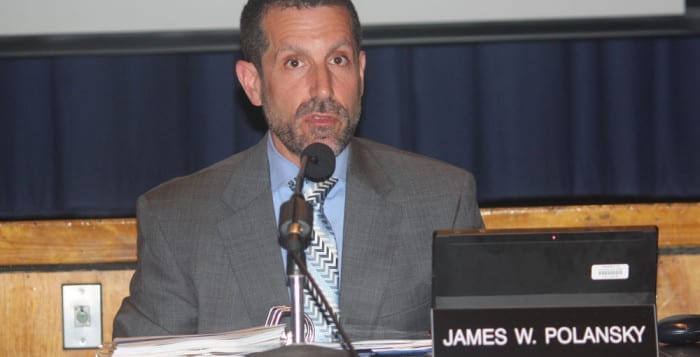Huntington talks upcoming education changes
New federal and state education rules are trickling down to the local level, and Huntington school district is figuring out how to adapt.
In a presentation to the school board Monday night, Superintendent Jim Polansky led a discussion about the state’s changes to the Common Core curriculum and the new federal Every Student Succeeds Act and what they mean for the district going forward.
President Barack Obama (D) signed the act in December 2015, to succeed Republican President George W. Bush’s controversial No Child Left Behind Act of 2002. The new act emphasizes college- and career-readiness and shifts more responsibility on testing from the federal level to the states.
“Board members asked me what implications this holds for New York,” Polansky said. “I’m not sure. New York is right now in a position where things have to be addressed in a manner that this act dictates, and we’ll be watching very carefully as to exactly what happens here.”
Although No Child Left Behind and more recently Common Core have been controversial with educators and parents, board trustee Emily Rogan said she doesn’t want the original spirit of the 2002 act to be forgotten.
“One of the things that was really positive about No Child Left Behind was that it drew the spotlight onto where there were true achievement gaps, in terms of parity in education,” Rogan said during the presentation. “I think it’s important that we recognize that. I think there were kids that were being completely ignored. I’m not saying here at Huntington — I’m saying across the nation. There were kids that were just falling through the cracks, literally.”
On the lower level, as some of the kinks in the curriculum get worked out, Common Core will be an option for states to use as a “challenging academic standard,” but not a requirement, Polansky said.
A task force assembled by Gov. Andrew M. Cuomo (D) back in December recently released a report that called for, among other things, a moratorium on using standardized test scores as a means to evaluate students, teachers and administrators.
Polansky expressed concerns, however, about the state simply casting Common Core aside.
“I will tell you that whether you agree or disagree with the Common Core standards in their basic form, the district has spent quite a bit of time, effort, money and professional development in making this transition,” Polansky said. “I think there will be a lot of argument in terms of just throwing them in the garbage, because of all of the work that has been done.”
School board vice president Jennifer Hebert voiced a similar sentiment.
“It’s such a stark contrast to what’s been going on over the last seven years,” Hebert said. “After all of the money that’s been spent on Common Core [and] they’re going to just up and abandon it?”
A major criticism of Common Core was an apparent lack of involvement from educators in establishing testing standards, Polansky said. That does not appear to be a problem with Obama’s federal act.
No Child Left Behind policies will remain in place at least until July 1. According to the U.S. Department of Education’s website, the department will work with states and school districts to begin implementing the new law over the next few weeks.







